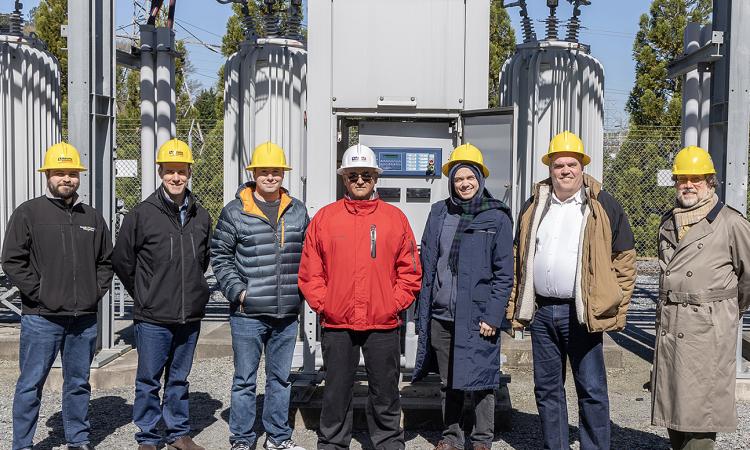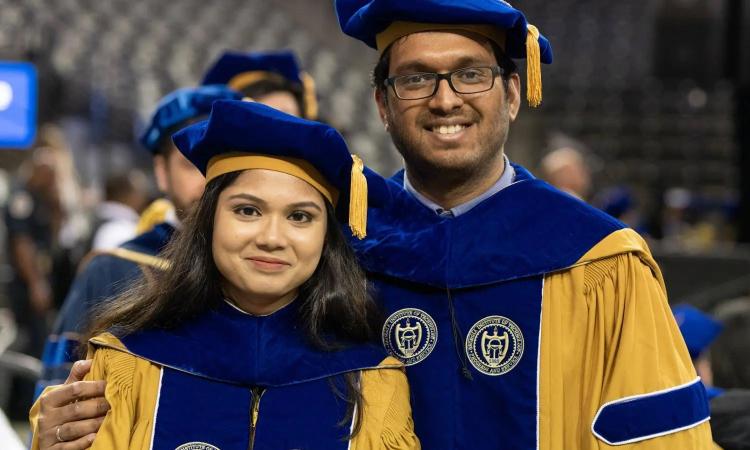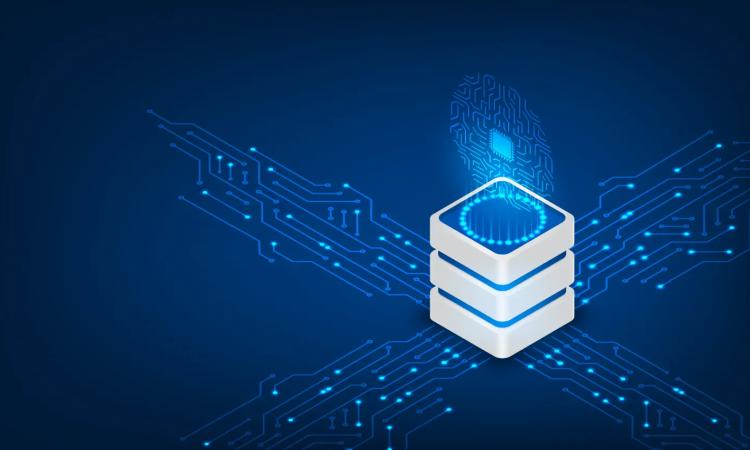RESEARCHERS IDENTIFY CRUCIAL BIOMARKER THAT TRACKS RECOVERY FROM TREATMENT-RESISTANT DEPRESSION
A team of clinicians, engineers, and neuroscientists has made a groundbreaking discovery in the field of treatment- resistant depression. By analyzing the brain activity of patients undergoing deep brain stimulation (DBS), the researchers identified a unique pattern in brain activity that reflects the recovery process in patients with treatment-resistant depression. This pattern, known as a biomarker, serves as a measurable indicator of disease recovery and represents a significant advance in treatment for the most severe and untreatable forms of depression.
FOUR ECE ENGINEERS, THREE RECEIVER SITES, TWO DAYS, AND ONE ECLIPSE EXPEDITION
While hundreds of Georgia Tech students gathered on Tech Green on April 8 to witness the first eclipse in the United States in close to a decade, three Ph.D. students in ECE began preparing for the eclipse days ahead. Roderick Gray, Matthew Strong, and Varun Rajput, along with ECE research engineer Kevin Whitmore, traveled early Saturday morning to Houston, Texas. The team, part of the Low Frequency Lab directed by ECE Professor Morris Cohen, set out with a goal of capturing data that could revolutionize our understanding of the Earth’s ionosphere, particularly the elusive D-region.
GRIDTRUST HELPS PROTECT THE NATION’S ELECTRIC UTILITIES FROM CYBER THREATS
A new cybersecurity technology that relies on the unique digital fingerprint of individual semiconductor chips could help protect the equipment of electrical utilities from malicious attacks that exploit software updates on devices controlling the critical infrastructure.
The GridTrust project, which has been successfully tested in a real substation of a U.S. municipal power system, combines the digital fingerprint with cryptographic technology to provide enhanced security for the utilities and other critical industrial systems that must update control device software or firmware.
“The security of updates applied to equipment is critical to maintaining operation of the nation’s electricity grid,” said Santiago Grijalva, the project’s principal investigator and Southern Company Distinguished Professor in ECE.
The project focused on power system controllers, including sensors, actuators, and protection relays that are normally located in power substations distributed throughout a utility’s service area. Malicious actors may attempt to alter the software controlling the devices to, for instance, turn off power or damage the equipment. The attacks could take place if technicians attempt to use corrupted software to make updates at utility substations or other facilities.
FROM FATE TO SHARED SUCCESS: THE LOVE (AND GRADUATION) STORY OF IRFAN AND FABIA AT GEORGIA TECH ECE
Despite attending the same university in Bangladesh, Irfan Al-Hussaini and Fabia Farlin Athena never met until their studies at ECE. Their first encounter was brief but sparked a mutual curiosity. Their relationship blossomed during their Ph.D. studies, providing mutual support both academically and personally.
They got married in Atlanta in 2022, surrounded by family and friends from both Bangladesh and the United States, marking a new chapter in their lives together. Now, Al-Hussaini works at NVIDIA, and Athena is pursuing a postdoctoral fellowship at Stanford. Their story highlights the unexpected ways education and community can bring people together, turning Georgia Tech into the perfect backdrop for their love story.
GEORGIA TECH AND SAMSUNG LOOK TO UNLEASH THE FUTURE OF DIGITAL STORAGE
The rise of AI-driven technologies relies heavily on advanced data storage solutions. Without efficient storage, applications like self-driving cars and healthcare diagnostics would not reach their full potential.
A collaboration between Georgia Tech and Samsung aims to reduce voltage in current technology, enhancing AI systems. Assistant Professor Asif Khan and Dipjyoti Das, a postdoctoral fellow under Khan’s supervision, are leading the effort, bringing together multiple labs and researchers. Their focus is on improving NAND flash technology, which is crucial for devices like SSDs and USB sticks.
(text and background only visible when logged in)



